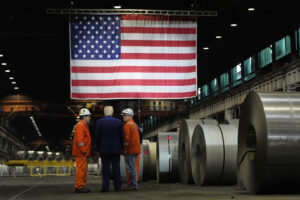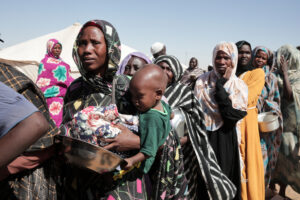Tackling Corruption is the Best Way to Save Iraq


In 2017, Iraqi Prime Minister Haider al-Abadi declared that IS was defeated in Iraq. Without IS holding it back, Iraq would have been on the road to revitalization. One year later, instead of throwing parades to celebrate a new era of recovery, Iraqis took to the streets in heated protests that erupted all over the country. Now, in October 2019, history repeats itself with an estimated civilian death toll of 100 and over 4,000 injured. Demonstrators are risking their lives to pressure the government into action, against rampant corruption, high unemployment, and a dilapidated infrastructure which fails to provide sufficient electricity and potable water. The World Bank Iraq portfolio is responsible for 10 current projects totaling $1.86 billion designed to strengthen the country’s institutions and support jobs, infrastructure, energy, and water. Despite projects like these, annually recurring protests indicate that efforts address these crucial needs have been insufficient. This begs the question: what can save Iraq?
Iraq invasion of Kuwait in 1990 kickstarted the Gulf War and prompted the US into battle in aid of its Kuwaiti allies. After its subsequent defeat by the U.S., Iraq suffered hefty sanctions by the UN Security Council and a $52.4 billion debt to Kuwait. A period of economic turmoil in Iraq sparked international debate over these repercussions of sanctions that arguably hurt average Iraqis more than they hurt their crooked dictator. The economic catastrophe incited by sanctions had reduced the once prosperous nation to an impoverished, struggling country. It is estimated that over 500,000 Iraqi children died during this period due to malnutrition. In an effort to curb the damages, the UN launched its Oil-for-Food program, allowing Iraq to sell its oil in exchange for humanitarian goods. Iraq didn’t see the first shipment of food arrive until 1997, two years after the program’s establishment. Furthermore, Saddam Hussein exploited the program to reap upwards of $1.7 billion in kickbacks and $10.9 billion in smuggled oil. After US invasion in 2003, civilian sanctions were lifted. By then, however, Iraq’s infrastructure had been crippled by economic stagnation and the war. Terrorists groups such as Al-Qaeda and IS took root soon after, leaving more devastation in their wake until 2017 saw the country excised of extremists.
The best way to deal with unethical officials is to drag them out into the public eye with a strong, free press. Accountability is a powerful tool against corrupt politicians—most of all in a democracy.
There are systemic challenges to improve Iraq’s stability. Its government is under constant pressure from multiple factions and international forces that make it difficult for legislators to be free from corruptive incentives and coercion. US intervention brought forth aid packages and investments designed to rebuild the country as a robust, modern democracy by investing billions of dollars in reconstruction projects. However, it is estimated that Iraq has lost $40 billion per year since 2003 due to corruption within the state. Freedomhouse consistently awards the country a “Not Free” rating and names corrupt practices such as kickbacks, whistleblower intimidation, and a weak judicial system as major obstacles towards fostering a freer Iraq. A 2019 IMF report indicates that Iraq’s anti-corruption efforts require significant improvements. It suggests passing legislation to criminalize illicit acts pervading the government. But such laws are meaningless if they are unenforced by a judiciary that usually reviews only a fraction of corruption claims. The Iraq government’s Commission of Integrity holds a backlog of over 13,000 corruption cases pending review, and most will never make it to the judiciary. Heads of the commission lack longevity as well. In May of 2019, Hussein al-Yassir resigned as chairman in protest of the commission’s inability to effectively execute its job. His predecessor, Izzat Taqfiq, died in a car crash. He had announced a plan to open several major corruption investigations prior to his death.
The best way to deal with unethical officials is to drag them out into the public eye with a strong, free press. Accountability is a powerful tool against corrupt politicians—most of all in a democracy. A UNDP report on tackling corruption in the Asia-Pacific offers some guidance that is applicable to Iraq. It states that press and media freedomis vital to establishing public trust and holding officials accountable laws and publicly stated promises. Iraqi journalists are imperiled and face harassment, intimidation, imprisonment, and sometimes death. An unshackled press can report for a global audience, raising awareness of misconduct and mismanagement by the government. Domestic and international pressures will create a “sandwich situation” to discourage corrupt actors from undermining the integrity of public institutions for the sake of personal gain. Legislative reforms and a more responsive judiciary are necessary to tighten anti-corruption efforts. However, the first crucial step towards excising the cancer of corruption should be through fortifying the media.
The road to Iraq’s recovery is long and paved with donations, foreign investments, and taxes. It is a road that has taken too many detours. The country’s plundered funds leave paper trails that are not pursued by a weak Commission of Integrity or punished by a neutered judiciary. The Iraqi government needs to start doing its job instead of lining its own pockets with wealth and riches as if possessed by the spectre of their despotic predecessor. The money has been there for almost two decades to jumpstart Iraq’s recovery. Yet, the multi-billion dollar reconstruction projects have not come to fruition.
Scott H. Vlachos graduated from New York University in 2018 with a Master of Arts in International Relations, specializing in politics of the Middle East and cybersecurity theory. He also holds a Bachelor of Arts in Political Science from Rider University where he specialized in security studies and political theory.




